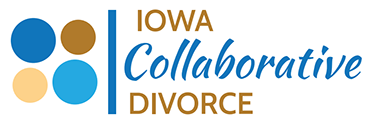Below are helpful resources when making decisions about the Collaborative Process.
The Collaborative Divorce process is controlled by the parties involved. It keeps the decision-making power where it belongs, with the people affected by the outcome. This is very different from a court process where ultimately the court and state created formulas decide what the divorce settlement and co-parenting arrangement will be. In the Collaborative Divorce model, the couple jointly sets the agenda for their divorce, and they determine the settlement that is best for their family. The parties retain full decision making authority and control.
Collaborative Law Knowledge Kit
This free information packet download was created by the International Academy of Collaborative Professionals (IACP) as a tool to educate you about Collaborative Practice. The PDF format can safely be downloaded onto your hard drive and emailed, or it can be printed as a concise hard copy.
This kit contains the following:
- A comparison chart entitled “Collaborative Divorce vs. Litigation Divorce”
- Case studies that highlight the flexible, solution-oriented process of Collaborative Divorce
- General information about the Collaborative Practice model and how it can benefit you
Helpful Documents
Definitions for Completion of Financial Statements and Business & Personal Worksheets
Financial Affidavit Worksheets
Meeting the Children in the Middle
Second Saturday Des Moines
Second Saturday Workshops offer unbiased information from divorce professionals including attorneys, therapists and financial professionals to give you an overview of the divorce process and answer your questions.
Divorce Workshops for Children
Iowa Center for Children’s Justice offers divorce workshops for children help kids involved in divorce cases understand what is happening between their parents while teaching them ways to cope with the changes that come with divorce. This class is required for children’s whose parents file for divorce in Polk County.
